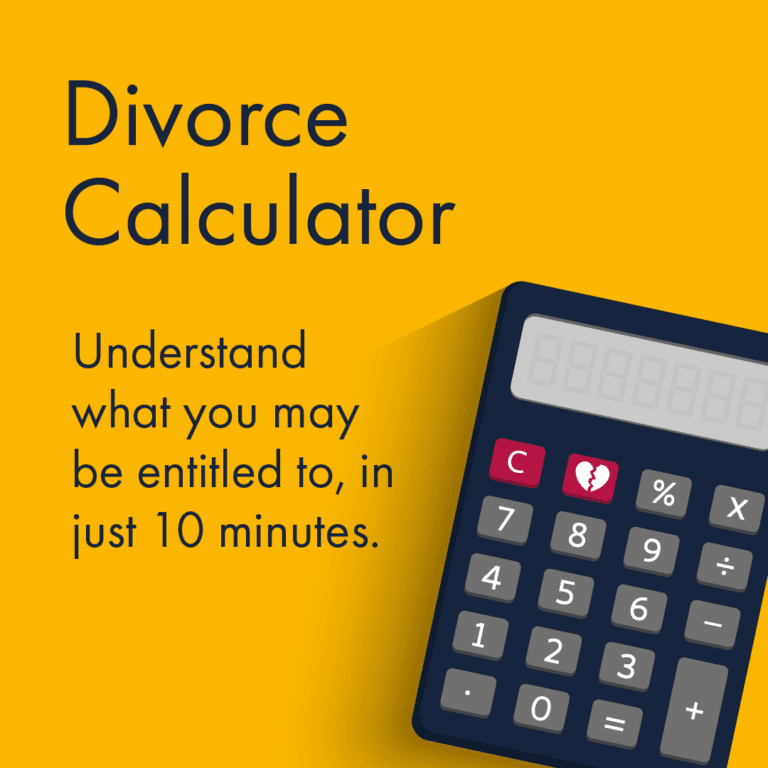Lawyers for Islamic divorce
Our specialist team of divorce lawyers have experience with Sharia Law in the context of marriage and divorce and frequently assist Muslims in seeking a divorce from their spouse.
read moreWe guide our clients through the process, mindful of the importance of their faith and culture whilst ensuring they get a service that fulfils the requirements of both their faith and English Law.
We support both men (Talaq) and women (Khula) who want a divorce and have a well-established network of Muslim counsellors, religious scholars and Sharia Councils to ensure you have a Sharia-compliant divorce.
Key divorce information
|
How much does a divorce cost? |
It’s essential to speak to a solicitor to get realistic costs for your specific situation. |
|
How long does a divorce take? |
On average, between 6 and 8 months. |
|
Are pensions included in a divorce? |
Yes, it’s important to include any pensions when submitting financial information. |
|
Am I eligible for a fixed-fee divorce? |
Fixed-fee divorces are only suitable when there are no financial or child arrangements to resolve. Complex cases would not be eligible for this model. |
|
Do I need to go to court? |
You’ll only need to go to court if you’re unable to reach an agreement through other methods such as mediation and arbitration. Over 80% of our cases are settled out of court. |
Our other divorce services
 Use the calculator
Use the calculator
Our team of Islamic divorce experts are:
- Specialist Muslim family lawyers and Islamic divorce solicitors with experience of Sharia Law pertaining to marriage and divorce.
- Have affiliation with Sharia councils as well as other professionals like religious scholars and Muslim counsellors.
- Urdu and Punjabi speaking.
- Sensitive to the cultural and religious difficulties that face clients who have to deal with civil divorces and Islamic divorces.
Providing specialist support across the UK, including the North West, Midlands, Yorkshire and Islamic divorce in London.
Meet our expert Islamic divorce solicitors
We offer an award winning service

Is my Islamic marriage recognised in the UK?
If you held an Islamic marriage ceremony in England or Wales, the short answer is no. UK law does not recognise Islamic marriages and if you wish your marriage to be legally recognised, you must have a civil marriage in addition.
read moreHowever, that being said, if your Islamic marriage was conducted outside the UK in a country that recognises Islamic marriage and the correct procedures were adhered to, then the marriage will be recognised under UK law.
The rule in the UK is that if your marriage was recognised in the country in which you married, then it will be recognised in the UK. Thus, you will have access to the same benefits as couples in the UK who have had a civil marriage.
It is important to seek specialist advice about your Islamic Marriage, whether you have had a civil ceramony or only a Nikah in the UK. Our lawyers can guide you through the Islamic Divorce process and work with local Sharia Councils to help provide you with the best outcome.
Why choose Stowe Family Law?
As the only national law firm fully dedicated to family matters, our expert team offers professional advice so you can make a fully informed decision about your divorce.
We are proud to be rated ‘Excellent’ on Trustpilot. Check out our reviews to see what our previous clients have said about our service.
We feature in The Legal 500 rankings and are fully authorised and regulated by the Solicitors Regulation Authority (SRA).
We keep you informed. Take a look at our support section, which features a range of helpful guides, focusing on important topics including finances and mediation.
Let's ask Mr M S
I spoke to Daniela and she was very knowledgeable and helpful. She simplified the process and covered all angles to ensure the legals behind this were understood.Let's ask Legal 500
Great at putting the legal jargon into lay person’s languageLet's ask Mrs O
Their knowledge, expertise, advice and confidence gave me the confidence, courage, belief and strength needed to help me through my divorce.Let's ask Mr R
My experience dealing with Stowe Family Law was overall very good. Given the delicacy of my case Camilla was very personable and was able to make me feel that I would reach a positive outcome - and this was delivered. I would definitely recommend the firm to anyone dealing with a case similar to myself.Let's ask Ms S D
I really felt I was listened to, I wasn't hurried and felt like I mattered. Daniela was honest, straightforward and gave me all the information I needed. I feel I am much more in control of my situation after my time with her.Let's ask Legal 500
‘Gemma Davison is excellent with clients and has a thorough knowledge of the law and practicalities of the matter, offering clients a rolls royce of a service.’Let's ask Legal 500
Stowe Family Law is a well-regarded national firm with a strong regional presence in and around Birmingham, providing high quality advice and representation in complex and high value financial remedy cases’.Common questions on Islamic divorce
At Stowe Family Law, we have lawyers who are specialists in dealing with Islamic divorce and the way it can interact with civil divorce. We help both men and women and have a solid network of Sharia Councils, Muslim counsellors, and religious scholars whom we work with to ensure you are compliant with Sharia law when getting a divorce.
Common questions on Islamic divorce
At Stowe Family Law, we have lawyers who are specialists in dealing with Islamic divorce and the way it can interact with civil divorce. We help both men and women and have a solid network of Sharia Councils, Muslim counsellors, and religious scholars whom we work with to ensure you are compliant with Sharia law when getting a divorce.
-
Do I need a cohabitation agreement?
If you have a registered Islamic marriage, but are not married civilly under English law, your marriage is not legally recognised in the UK. In this case, should the relationship break down or one party die, you will be treated as cohabitants.
At the moment, cohabitees have very few rights under English law. They have no automatic claim to inheritance in the event of the death of one party and are not automatically entitled to make financial, capital, spousal maintenance or pension claims in the event of the relationship breaking down.
Should you and your spouse have children together, there are legal safety nets in place. The law does not distinguish between married and unmarried parents, so child law remains the same if unmarried parents separate. Child arrangement orders can be put in place by the court for cohabiting couples.
A cohabitation agreement, however, might be useful in cases where you are married under Islamic law, but the marriage is not legally recognised under English law.
A cohabitation agreement is similar to a prenuptial agreement, and lays out the assets, finances and property that the couple has between them, or anything that might be acquired throughout the relationship.
A cohabitation agreement is not legally binding, but if put together by a legal professional, is likely to hold weight. It can be constructed at any point during the relationship, and can be ‘varied’ if circumstances change, for example the couple have a child, or one party inherits significant wealth.
A cohabitation agreement may therefore be a useful document to have in place if you have an Islamic marriage, but not a civil marriage under English law. It may mitigate any disputes that arise should the relationship end.
-
How to get an Islamic divorce in the UK?
The process of divorce for a couple married under Islamic law differs depending on whether the man or the woman initiates proceedings. Islamic divorce can be initiated by either party, which is established in the Quran. However, couples are encouraged to seek help in reconciliation through arbitrators.
If the divorce is initiated by the husband, the process is called Talaq. His pronouncement can be either in writing or verbally delivered. It must, however, be followed by a waiting period (Iddah/Iddat) of three months. During this time, no sexual relations can take place.
Since the husband is then the ‘contract breaker’ he must pay the Mahr in full where it has only been partially paid, or some has been deferred. The Mahr is a kind of dowry which the husband pays to the wife only.
A husband can divorce his wife unilaterally in Islamic law, but either party may apply for an Islamic Talaq certificate. This document can be used as evidence that the couple have divorced.
If the wife initiates divorce, there are three options available to her:
Khula
Both parties agree to divorce, or the husband is persuaded to agree to it. If the husband is not at fault, he can ask that her Mahr is returned to him in full because she is the ‘contract breaker’.
Faskh
In the event that the husband is at fault, the wife can ask for a divorce with cause but must offer proof that he has failed to fulfil his marital responsibilities which were outlined in the Nikah (marriage contract). These responsibilities could include providing support, a separate home and conjugal rights to his wife.
In the Faskh process, the jurist can grant a divorce even if the husband does not agree.
Tafreeq
Generally the process used when the wife has suffered oppression at her husband’s hands. She separates and then seeks the help of the Islamic Sharia Council (ISC) or an Islamic Court.
These authorities can dissolve the marriage through annulment.
-
Do I need a civil divorce?
If you have had a civil ceremony to legalise your marriage in the UK, then yes, you will need a civil divorce to formally separate from your spouse in the eyes of UK law.
You can find all the information on how to do this here.
In some cases, a husband may want a civil divorce, but refuse to grant a religious divorce. In these cases, the wife can apply to the Court requesting that a Conditional Order (dissolving a civil marriage) is not made until the religious divorce is granted.
Latest advice
Newsletter Sign Up
Sign up for advice on divorce and relationships from our lawyers, divorce coaches and relationship experts.
Privacy Policy
























